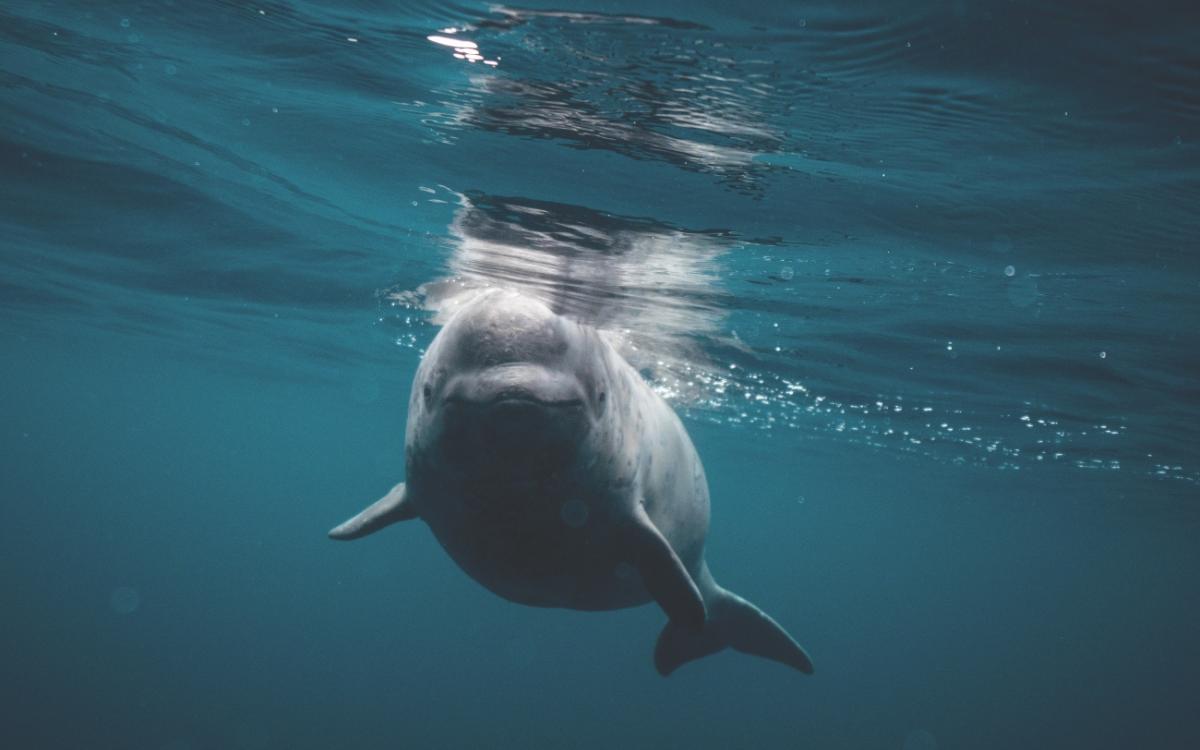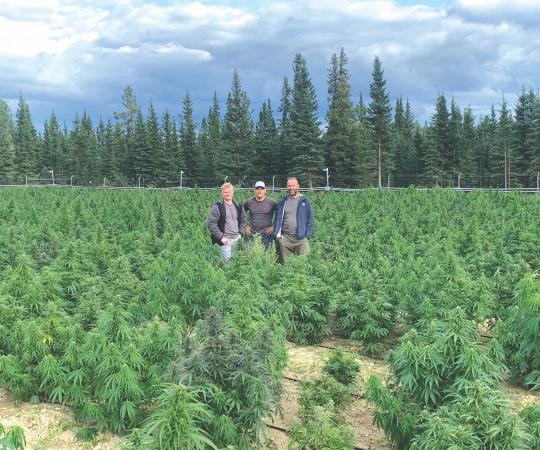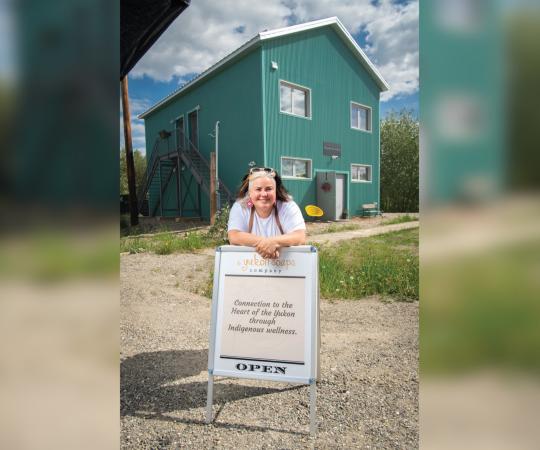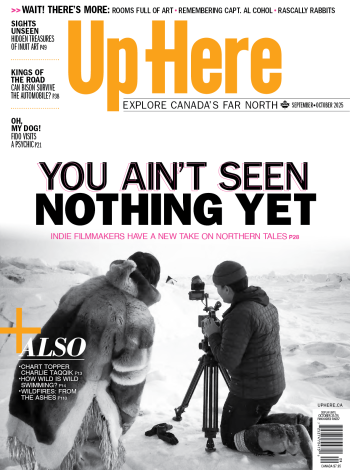You might miss Inuvik’s new country-food processing plant if you didn’t know what you were looking for. It occupies an unassuming pair of trailers in an otherwise sparse industrial park located on the west side of the Mackenzie Delta town. But make no mistake: the place is a hive of activity. Inside, people dressed in white smocks and hairnets are handling an assortment of wild game. One person butchers the food into different cuts; another vacuum-seals it in bags and packs them into a fridge. A meat grinder purrs in the background while a smoker hisses. In the corner, links of sausage drape across a metal rack to dry. The air is filled with smells of moose, muskox, and beluga.
This small facility is part of an economic development project launched by the Inuvialuit Regional Corp., the organization that oversees the Inuvialuit land claim. It is not a for-profit business in the traditional sense, but it does create value in the form of employment for plant staff, job training, income for harvesters who supply the plant with country foods, and increased food security in the six Inuvialuit communities.
Originally, the regional corporation bought the food plant’s trailers in 2016 to host community workshops and teach Inuvialuit useful skills in food preservation. The organization, however, grew increasingly ambitious in its mission over time. “There was a vision to let Inuvialuit harvest country food, process that food, and distribute back out to the beneficiaries,” explains Brian Wade, director of the Inuvialuit Community Economic Development Corp., which is responsible for the plant. This model would not only tackle food insecurity in the region on a more consistent basis but would reconnect communities with traditional harvests and provide local employment opportunities.
In August 2021, a small group of Inuvialuit were hired to participate in an intensive four-week training course; by September, the plant was officially operating with five full-time staff. Eight months in, the facility is now a well-oiled machine. It processes anywhere between 100 to 200 pounds of meat—including moose, geese, muskrat, beaver, rabbit, and a variety of fish—in a given day. While steaks and roasts are staple items, it has been the more innovative recipes that local media outlets mention in headlines, everything from beaver bacon to beluga whale sausages, to fish jerky.
“We don’t incorporate your traditional dry fish and dry meat because we realize that Inuvialuit have created a mini-economy and way of living around it. That’s something I don’t want to compete with,” Wade says. “So, we’ve altered everything with a modern twist.”
All the meat is sourced through local Hunters and Trappers Associations in the six Inuvialuit communities (Inuvik, Aklavik, Paulatuk, Tuktoyaktuk, Ulukhaktok, and Sachs Harbour). Once enough food has been processed and stockpiled, it’s then boxed and sent to households throughout the region, free of charge. The first round of distributions was made last December, and according to Wade, staff received very positive feedback from the communities afterwards. “People were very grateful,” Wade says. “There are families out there that…because of whatever circumstances, are unable to get [country foods]. This is giving them a chance to put some in their freezers and incorporate it into their daily meals.”
Food security is an ever-present concern in the Arctic communities. Already saddled with high costs of living, they rely on gravel roads, barges, or air freight to receive supplies, all of which are vulnerable to weather conditions that are becoming less predictable due to climate change. Given this reality, part of the solution to food insecurity in the region creates an opportunity to return to traditions that have suffered under decades of colonial government policies. That’s precisely what the processing plant in Inuvik is doing, Wade says. The facility is young, but the idea behind it is nothing new. Inuvialuit have always shared harvests and provided for one another. “It’s that value we get from our culture, just brought up onto a bigger scale,” Wade says.
It’s also part of what motivates the staff. Take lead hand Scott Kisook, for instance. Born and raised in Inuvik, he spent much of his childhood on the land hunting, trapping, and fishing. “I love to share what I harvest,” he says. “If there’s any community gatherings or big events, I’m right there, offering moose, fish, and anything I have.”
In essence, Kisook does the very same thing at the plant, albeit by managing the inventory, making schedules, and determining how the meat should be prepared. Still, at the end of the day, he’s proud knowing his hard work helps feed Inuvialuit families. Plus, he gets to try out new equipment, and he has learned new techniques and recipes he can put into practice off the job.
In this way, the processing plant kills two birds with one stone: combating food insecurity through creating opportunities for professional development. “We’re also creating an economy around the traditional economy,” Wade says, noting that hunters are compensated for their time and the meat they contribute. “Harvesters now have a financial opportunity to go out and provide raw material for this initiative.”
In other words, the processing plant isn’t reinventing the wheel; it’s merely giving one that already exists a well-intentioned push. As the facility’s first birthday approaches, Wade, Kisook, and the rest of the country-food team, are keeping their sights set high. They plan to distribute food at least four times a year, with the goal of ensuring every one of the 1,050 Inuvialuit households in the region receives a package. If everything continues going well, the operation may move out of the trailer and into a more permanent building.










